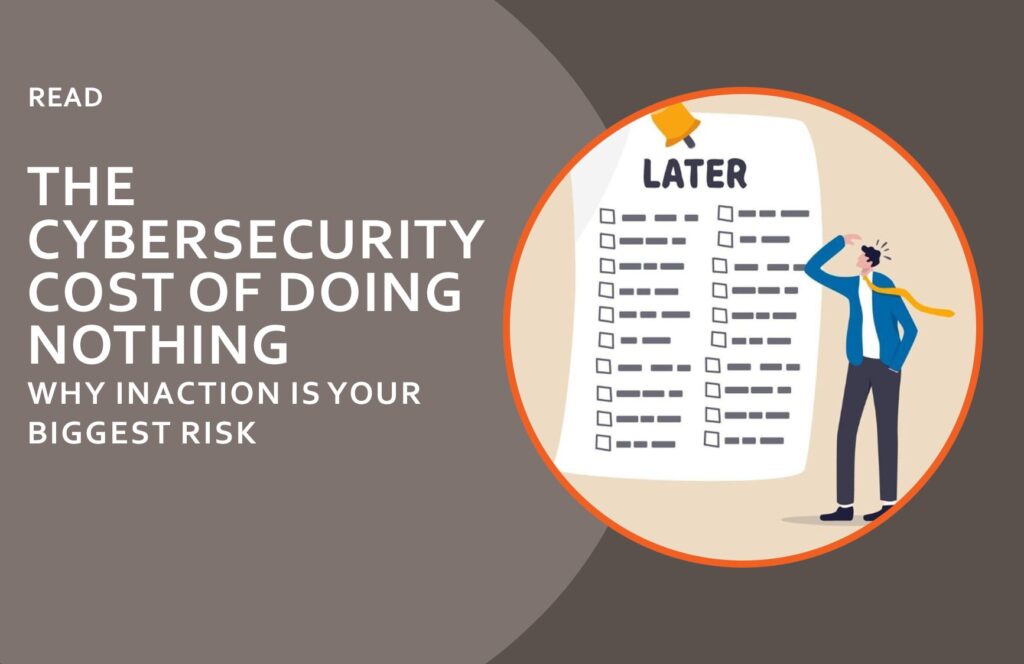READ: The Cybersecurity Cost of Doing Nothing: Why Inaction Is Your Biggest Risk

When it comes to small business cybersecurity, inaction isn’t a neutral choice. It’s a strategy—and a terrible one at that.
For many small businesses, it’s easy to fall into the trap of “we’ve never had a breach” or “we’re too small to be targeted.” But here’s a cosmic truth: if you have data, you’re on someone’s radar. Cybercriminals love low-hanging fruit, and businesses that delay action are practically gift-wrapped.
The Real Price Tag of Procrastination
Waiting until after an incident to invest in cybersecurity is like buying home insurance while your kitchen’s on fire. The average data breach for small businesses can come with a significant cost —and that doesn’t include the reputational fallout, legal fees, or regulatory fines.
Let’s not forget downtime. Even a few days offline can derail your operations, drive away customers, and leave your team scrambling. Spoiler alert: ransomware doesn’t care how busy you are.
What’s Holding You Back?
We get it. Cybersecurity feels complicated, expensive, and time-consuming—especially when you’re already stretched thin. But here’s the twist:
Small businesses actually have the advantage.
Why? Because your systems are usually less complex, less sprawling, and less tangled in bureaucratic red tape than your enterprise counterparts. That means securing them is more straightforward and way more affordable than you might think.
Still holding back?
We understand that cybersecurity can seem daunting—complex, costly, and time-consuming. However, here’s the reality:
Small businesses actually have an advantage.
According to IBM’s 2023 Cost of a Data Breach Report, the average cost of a data breach for organizations with fewer than 500 employees is approximately $3.31 million. While this figure is significant, it’s notably lower than the global average of $4.88 million reported in 2024. This suggests that smaller businesses, with less complex systems, may face lower breach costs.
-
Budget concerns? The cost of a breach can far exceed proactive cybersecurity investments.
-
Complexity worries? Smaller systems mean fewer vulnerabilities and more straightforward security solutions.
-
Uncertainty about where to start? Begin with a comprehensive risk assessment to identify and address potential threats.
Moreover, if your business operates within regulated industries—such as healthcare, defense contracting, or finance—non-compliance isn’t just a risk; it’s a liability. Regulatory bodies like HIPAA, CMMC, and NYSDFS impose strict cybersecurity requirements. Failure to meet these standards can result in substantial fines, legal repercussions, and loss of customer trust.
Bottom Line
Proactive cybersecurity measures are not just a defense mechanism—they’re a strategic investment in your business’s longevity and reputation.
Doing nothing is doing something. It’s choosing risk over resilience, chaos over control, and fear over preparedness. Fortunately, there’s still time to flip that script.
Security doesn’t have to be complicated. And you don’t have to do it alone. We are the small business cybersecurity experts. Contact Us Today








